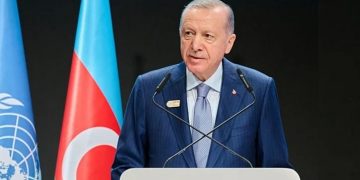Venezuela’s authoritarian president Hugo Chavez is a villain out of a Batman movie: buffoonish and sinister in equal measure.
 Sunday’s vote result powerfully exposes both sides of his clown-prince system of rule.
Sunday’s vote result powerfully exposes both sides of his clown-prince system of rule.
Read more: Survivor and Venezuela’s long-serving president
For weeks before the vote, Chavez signaled a willingness to surrender power, should the result go against him. On Election Day itself, he gave the Venezuelan newspaper El Universal a quote indicating he foresaw the possibility of defeat.
“Let’s get ready to recognize the results, whatever they are,” he said..
And yet just a few hours later, Venezuela’s Election Agency showed Chavez winning massively, by nearly 10 percentage points. Is the result legitimate? That’s hard to say. Venezuela has not invited any international election observers since 2006 and anomalies have been observed in past votes, especially the 2004 referendum to recall Chavez from the presidency
Yet it should also be said: In Venezuela, the most important forms of vote fraud happen well before Election Day.
First, the Chavez regime systematically controls and manipulates the mass media, especially television. Francisco Toro, founder of the indispensable Caracas Chronicle blog writes in the New Republic:
“Three minutes per day per broadcast outlet. That’s how much advertising each candidate is allowed in Venezuela in the weeks leading up to a presidential election. That’s six 30-second spots, no more. To long-suffering TV watchers in U.S. battleground states, that must sound like paradise. There’s a catch, though. While each candidate’s campaign is allowed no more than three minutes, the government can run as many ‘institutional’ ads as it wants to promote its work. And in Chávez-era Venezuela, such ads are generally indistinguishable from the official campaign ads, down to using designed-to-look-alike logos.
Apart from campaign ads, however, the president himself can commandeer as much TV time as he wishes, although in the case of the long-winded Chavez, such appearances may not be vote-winners. More relevant to the success of the president’s messaging is the regime’s habit of seizing TV stations that broadcast journalism of which the authorities disapprove.
Along with state media control goes massive government vote-buying.
News: Six more years with Chavez
The Los Angeles Times reports: “Chavez in recent months has solidified his support base with massive giveaway programs, including one that aims to build 200,000 housing units for Venezuela’s poor. Another, called Mi Casa Bien Equipada, or My Well-Equipped House, has donated Chinese-made household appliances to tens of thousands of poor families.”
The use of state oil funds for this kind of electioneering is driving Venezuela’s budget deficit for the year to the astounding level of 20% of GDP, an incredible figure for an oil-exporting economy at a time of very high oil prices. (Context: The U.S. budget deficits that have so alarmed people during the Obama years never reached as much as 9% of GDP.)
Venezuelan politics is distorted most of all by a pervasive mood of threat.
I visited Venezuela in 2010. My visit began with a briefing at the U.S. Embassy. “You’ve been to Afghanistan?” Yes. “You’ve been to Iraq?” Yes. “Well, congratulations. This is the most dangerous place you’ve ever been.”
Venezuala, with a population smaller than Canada’s, suffers more homicides than the United States. Robberies at gunpoint — “express kidnappings” as they are called — are regular occurrences in middle-class neighborhoods. And if middle-class neighborhoods evince any disaffection from the regime, they lose what little police protection they have, or even discover the police suddenly abetting and aiding the criminals that prey upon their community.
Property is seized. Businesses are arbitrarily nationalized. Conversations are eavesdropped upon. The Internet is policed, at least to the best of the (very limited) ability of Venezuela’s not very competent security forces.
Hugo Chavez has laid Venezuela’s economy to waste. One of the world’s great energy producers must turn its streetlamps off at night. One of the world’s wealthiest exporters cannot afford to import enough food. One of the world’s energy superpowers is seeing its production slowly dwindle away because of chronic under-investment in the oil fields and the loss of access to technology as foreign companies are harassed and expropriated.
Did Venezuela vote for more of the same? Chavez does have a militant populist constituency, and it’s not impossible that the final result does reflect what the voters actually did. But then, Vladimir Putin wins elections, too, and Mahmoud Ahmadinejad won at least one. It is not elections alone that make a free society — and a free society is what Venezuela long ago ceased to be.













